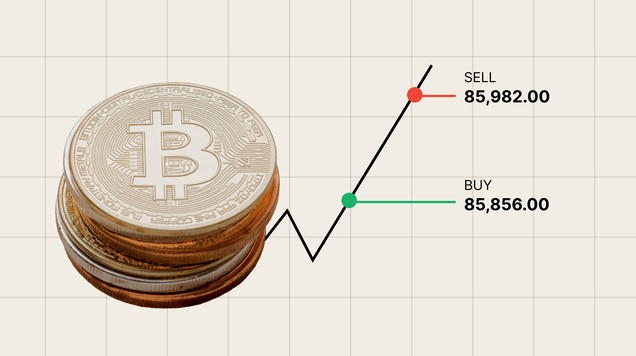Crypto market hit by Bybit hack
A $1.4 billion hack at Bybit shakes investor confidence, while the SEC’s shift in enforcement offers a brief market reprieve. Bitcoin and Ethereum struggle amid heightened uncertainty.

Bybit hacked for $1.4B, triggering panic selling and liquidations.
Bitcoin drops below $90,0000, Ethereum falls below $2,500.
SEC backs off lawsuits against Coinbase and Robinhood.
MicroStrategy buys more BTC, raising $1.99B for 20,356 BTC.
The cryptocurrency market is reeling from a turbulent week, with a massive security breach at Bybit sending shockwaves through digital asset prices and investor confidence. Meanwhile, regulatory developments in the U.S. offered a rare glimmer of relief, as the Securities and Exchange Commission (SEC) appears to be softening its stance on enforcement actions against major players like Coinbase and Robinhood. As of Tuesday morning, the global crypto market cap hovers at $3.14 trillion, down 1.16% from last week, reflecting a cautious retreat amid heightened uncertainty.
Bybit’s $1.4 billion hack
The marquee event of the week was undoubtedly the Bybit exploit, where hackers siphoned off $1.4 billion in Ethereum, marking one of the largest thefts in crypto history. The breach, reported on February 22, triggered a cascade of liquidations totaling $566.64 million, according to Coinglass, as panicked traders dumped positions. Bitcoin slipped below $90,000, while Ethereum dropped below $2500.
Analysts see this as more than a one-off event. The Bybit hack exposes the persistent vulnerability of centralized exchanges. It’s a stark reminder that even as the market matures, security remains a weak link. Posts on X echoed this sentiment, with users calling it a “wake-up call” for the industry. The Fear & Greed Index, a barometer of market mood, sank to 32, signaling extreme fear.
SEC pivot offers breathing room
On the regulatory front, a surprising twist emerged. The SEC is reportedly dropping lawsuits against Coinbase and Robinhood, a move that briefly lifted their stock prices before broader market woes dragged them back down—Coinbase shed over 8% on Friday. This shift, detailed by Investopedia and Reuters, hints at a potential thaw in the agency’s historically aggressive stance toward crypto. It follows years of legal sparring that have stifled innovation and spooked investors.
Could this signal a Trump-era détente? The administration’s pro-crypto leanings—evidenced by 20 states mulling Bitcoin reserves and MicroStrategy’s $2 billion BTC-linked notes offering—are hard to ignore. The SEC’s retreat might be less about goodwill and more about political pressure. With Trump’s team pushing digital assets, the agency’s hand may be forced. Still, skeptics caution that regulatory clarity remains elusive, and the market’s relief could prove fleeting.
Pi Coin’s wild ride and MicroStrategy’s big bet
Elsewhere, Pi Coin grabbed headlines with a surge to $1.55 after a brutal 60% crash on its debut day. The Web3 token’s volatility underscores the speculative fervor still driving parts of the market—a contrast to the institutional moves shaping Bitcoin’s narrative. MicroStrategy raised $1.99 billion via convertible notes to scoop up 20,356 BTC, reinforcing its bet on Bitcoin as a treasury asset. Saylor’s doubling down while others hesitate. It’s a bullish signal, but it’s also a concentrated risk.
What’s next?
The week’s events paint a bifurcated picture: security lapses and regulatory reprieves jostling for dominance. Bitcoin’s dominance holds steady at 61.1%, but its price teeters near critical support at $86,000. Ethereum, stung by the Bybit fallout, faces resistance at $2,800. Broader market jitters—tied to a U.S. stock sell-off and tariff threats—add another layer of complexity.








